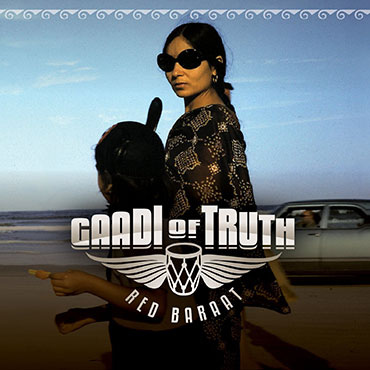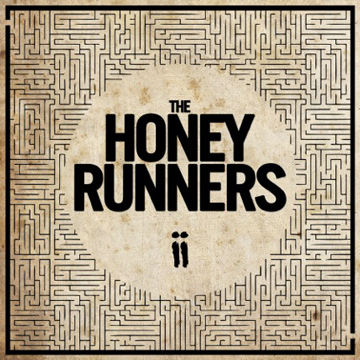 Worth Taking is a San Francisco-based power pop-punk collective renowned for pure, simple, energising, and, yes, hopeful paeans to the unique dangers and opportunities accompanying the period of adolescence. The band, comprised of Jerod McBrayer, Chris Self, and Chase Kossack, is now touring its second LP, Hangman (listen to the track “Different Now” here), which does an amazing job of laying out the transformative path of the 12 Steps in a way that’s instructive and redemptive as well as pure fun. Recently the band’s founder, Jerod McBrayer, took the time to answer Wanda Waterman’s questions about the band’s music, creative journey, and why they take morality so seriously.
Worth Taking is a San Francisco-based power pop-punk collective renowned for pure, simple, energising, and, yes, hopeful paeans to the unique dangers and opportunities accompanying the period of adolescence. The band, comprised of Jerod McBrayer, Chris Self, and Chase Kossack, is now touring its second LP, Hangman (listen to the track “Different Now” here), which does an amazing job of laying out the transformative path of the 12 Steps in a way that’s instructive and redemptive as well as pure fun. Recently the band’s founder, Jerod McBrayer, took the time to answer Wanda Waterman’s questions about the band’s music, creative journey, and why they take morality so seriously.
Describe your musical background. What role did music play in your childhood?
I grew up singing, but didn’t get serious until about middle school. I performed in chorus up through high school, making it to All-State multiple times. Though singing was a true calling, the choral direction was not; rock music soon took hold. I taught myself how to play some instruments, played in a number of bands, and here we are.
I think this is the first album I’ve ever seen that was inspired by the 12 Steps. It’s even more bizarre that it’s power pop-punk. Please tell me the story of how this came about.
Though many would assume a story of addiction would be heavily influenced by the world of “rock and roll,” the theme of this record draws just as much from people outside of that particular circle. Addiction and issues, like it or not, are not uncommon in this world. If it’s such a familiar story, why isn’t it being told? Why are we not telling each other that we’re not alone? That’s the question I tried to answer here.
I got this from your website and was duly impressed: “The pop-oriented sound also allowed him to … explore deeper lyrical themes, such as … our ongoing struggle with morality.” How did morality become something you took seriously?
I think morality is fascinating because it’s constantly evolving. Regardless of your anchor point, we all define morality from our unique perspectives as individuals. Things that were socially “black and white” mere decades ago are now more nuanced, doubly so when you start measuring in larger increments of time.
What do you love best about Hangman? And why did you call it that?
I love the depth of this record. There were very few self-imposed boundaries, so this record has definitely been given “room to breathe.” I love that it feels like more than just a collection of songs. The title is in reference to the Hanged Man card. It is both a visual representation of the record as well as an icon that represents the number 12, a major theme of the record.
If your band’s life were a movie, what kinds of scenes would make you laugh? Or cry?
Most, if not all, scenes would make us laugh. The darker themes of this record belie the jovial nature of our band. The only thing we take seriously is to never take ourselves too seriously. Thus far we’ve only shed tears of joy in this band. Many of those were due to late nights when we’ve been up so long that anything is funny.
What do you feed your muse? Are there any books, films, or albums that have deeply influenced your development as an artist?
I think comedy, in general, is often overlooked in regards to its inspirational value. Comedy is a thought-provoking Trojan horse. I’ve gone down many a philosophical rabbit hole because of a particular stand-up bit. Right now, to give a specific example, I love listening to Pete Holmes and his podcast.
Do you feel that artists have an obligation to straighten the world out a little?
I would say artists have no more obligation than any other person. However, any obligation we have should be in line with what we’re best suited to give. Harmony takes all kinds. My belief is that artists are meant to be reflections. We’re not necessarily meant to make sense of the abstract.
Tell us about your current and upcoming projects.
We’ve been anticipating the release of this record and will tour most of 2016 to promote it. We’re working on videos and other auxiliary projects to help enhance this record and the experience surrounding it. We’re certainly making efforts to ensure no one gets bored.
Do you have anything else to add?
Absolutely. This has been an extremely pleasant interview. We are always excited to answer questions, but it means that much more when they are thoughtful. So, thank you for that. Hard work never goes into a vacuum.
Wanda also writes the blog The Mindful Bard:The Care and Feeding of the Creative Self.


